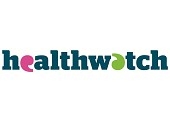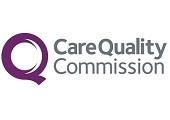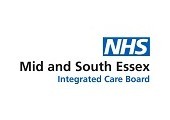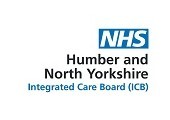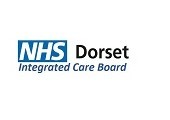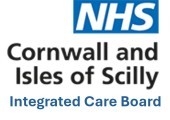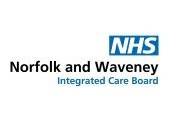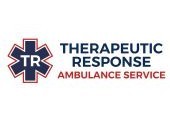How we are governed
How we are governed
At Health Transportation Group UK we are committed to ensuring patients receive high quality care while also providing an environment in which we can continuously improve how we deliver our services. Our commitment to quality focuses on three main areas:
- Patient safety
- Patients' experience of care
- Effectiveness of care
CQC
The Care Quality Commission (CQC) is the independent regulator of health and social care in England. They make sure health and social care services provide people with safe, effective, compassionate, high-quality care and encourage care services to improve.
The CQC also monitor, inspect and regulate services to make sure they meet fundamental standards of quality and safety and publish details, including a performance rating on each service. Inspections can be announced or unannounced and the CQC continuously collect data on the quality of our service.
HTG-UK are registered with the CQC and you can find details of our registration with the CQC on their website.
Our CQC registration certificate can be found here.
Working with our stakeholders
We work closely with our commissioners to regularly report on our performance and quality standards.
For example we meet frequently with quality leads within Clinical Commissioning Group (CCGs) to provide assurace on all areas of quality including incident reporting, training, complaints and infection prevention and control. This robust reporting programme ensures we are able to provide comprehensively demonstrate that we meet the highest quality standards expected of a healthcare provider.
Safeguarding
We are fully committed to safeguarding and promoting the welfare of vulnerable adults and children.
We have a moral and statutory responsibility to report any incident where there are grounds to suggest that a vulnerable adult or child is at risk of or likely to suffer abuse or where there are concerns about an individual’s circumstances.
We have developed safeguarding policies and procedures which offer both practical processes and guidance to allow our staff to raise concerns regarding the welfare of a vulnerable adult or child which are then reported to the appropriate agency.
All staff receive safeguarding training during their induction as well as further training appropriate to their role.
Prevent
The Prevent Strategy is a cross-Government policy that forms one of the four strands of CONTEST – the Government’s counter terrorism strategy. With over 1 million contacts with patients every 36 hours, the NHS, together with its provider partners, is key to the support and delivery of the Government’s Prevent Strategy.
HTG-UK is fully committed to implementing the Prevent agenda and ensure that:
- HTG-UK employees know how to safeguard and support vulnerable individuals whether service users or staff, who may be at risk of exploitation by radicalisers who promote violence
- Appropriate systems are in place within HTG-UK for employees to raise concerns if they think this form of exploitation is taking place
- HTG-UK promotes and operate safe environments where at risk adults are protected from exploitation
Infection Prevention and Control (IPC)
The prevention and control of infection is recognised as the responsibility of every single member of staff, especially those delivering direct patient care. We are committed to providing a safe, clean and hygienic environment. This commitment is supported by a robust policy and procedures for infection control in line with the Department of Health approved code of practice.
Our work includes:
- Developing and regularly reviewing a range of procedures based upon current guidance and with the support of IPC specialists. These include procedures for the transport of patients with known or suspected infections (including Covid-19) and the procedures for the ongoing cleaning of vehicles and equipment
- The provision of regular training for all staff in infection prevention and control
- Liaising with other organisations, for example hospital trusts, Public Health England and the Department of Health, in the development of guidance and procedures associated with infection prevention and control measures
- Inspecting, auditing and reporting on infection prevention and control practices across all areas of our business.
Information Governance
As a responsible provider of non-emergency patient transport we have to ensure that all information is dealt with legally, securely, efficiently and effectively. This includes the personal and sensitive information of patients and employees as well as organisational information.
In addition to the company's safeguards, patients’ personal data is protected in the UK by the Data Protection Act. This provides amongst other things that the data we hold should be processed lawfully and fairly. It should be accurate, relevant and not excessive. The information should be kept up to date, where necessary, and not retained for longer than is necessary. It should be kept securely to prevent unauthorised access by other people.
Hayden Newton, Director of Quality and Clinical Governance, is our Caldicott Guardian. This gives Hayden responsibility for protecting the confidentiality of patient and service-user information and enable appropriate information sharing.
Emergency Preparedness Resilience and Response (EPRR)
HTG-UK have been assessed as being significantly compliant following the EPRR assessment process for 2020/2021
Equality and Diversity
As part of our commitment to equality, diversity and human rights we work to ensure our staff, patients and communities are treated fairly and with respect.
Equality ensures people have equal experience and opportunity.
Diversity recognises that we are all unique individuals and values those differences.
Human Rights are the basic rights and freedoms that belong to us all.
We ensure that our principles are embedded in the way we work and within legal frameworks to prevent discrimination.
Click here to read our Modern Slavery statement.
Click here to read our Duty of Candour Statement.
Click here to read our Carbon Reduction Plan.
